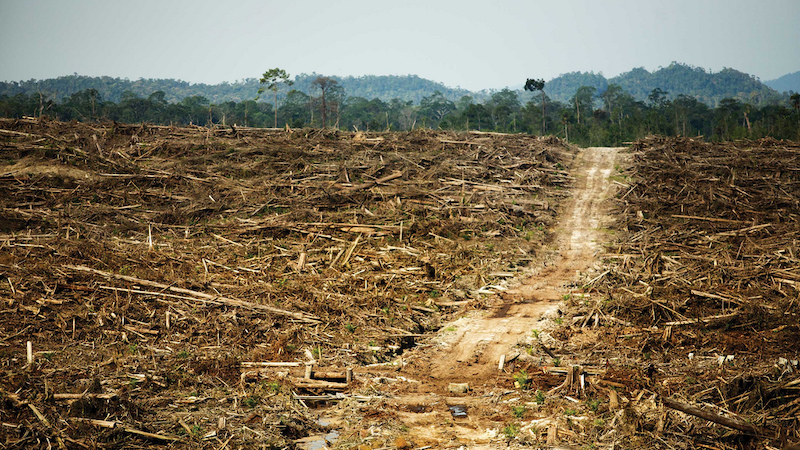Indonesia’s planning minister has said the country will choose a low-carbon development pathway after a government report found that it could significantly boost the economy.
By 2045, the centenary of Indonesia’s independence, citizens could be as wealthy as those of the Netherlands or Germany today, the report found. But it will need to make careful choices across all sectors of the economy.
Releasing the report, planning minister Bambang Brodjonegoro said: “For the first time, Indonesia will systematically mainstream [low carbon development] into development planning. The progress of our growth is not only measured by GDP, but also environmental sustainability, resource efficiency and social justice. This transformation is both exciting and challenging.”
The report, which was co-authored by the global think tank the World Resource Institute, Norway, Germany and the UK, found that primary forests would need to be preserved through full enforcement of the current moratoria on palm oil and mining. It should also cut reliance on coal power and aim for a 30% share of renewable electricity by 2045.
Leaders told to bring plans, not speeches to UN climate summit
By choosing this path, Indonesia’s GDP could grow by 5.6% through 2024, and 6.0% through 2045. As many as 15.3 million jobs could be created in 2045, while poverty could drop from 9.8% to 4.2% of total population.
Meanwhile carbon emissions could fall by 43%, exceeding the country’s pledge to the Paris Agreement, the report found.
On top of economic and climate benefits, such policies would ensure that the country keep 41.1 million ha of primary forests, including nearly 15 million ha of peat lands by 2045.
In 2008, Indonesia’s president Joko Widodo signed a three-year moratorium on new palm oil development and ordered a review of existing plantations. Green groups have however pointed to weaknesses within the law, such as its restricted application to land controlled by the ministry of forestry. This leaves out millions of hectares of rainforest and peatland from areas controlled by regional government or forest within existing palm oil concessions.
Global issues need global coverage
CHN is dedicated to bringing you the best climate reporting from around the world. It’s a huge job and we need your help.
Through our Patreon account you can give as little or as much as you like to support our work. It’s safe and easy to sign up.
Indonesia’s move to embrace the initiative comes amid a flare-up of tensions with the EU over restrictions over palm-oil products. In February, the EU moved to classify palm oil biofuels as unsustainable. Indonesia has responded by threatening to launch a trade war against the bloc. Malaysia, another large palm oil producer, has threatened to buy military aircraft from China, rather than the EU.
On Monday, the Indonesian government notably said that it would encourage the country’s palm oil companies to file lawsuits against the EU if the bloc goes ahead with a plan to phase out use of the commodity in renewable transport fuel.
